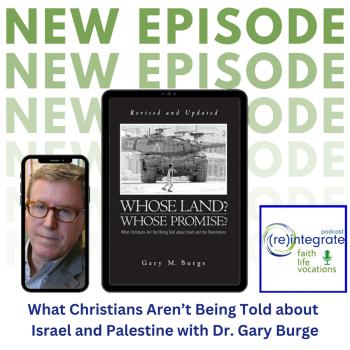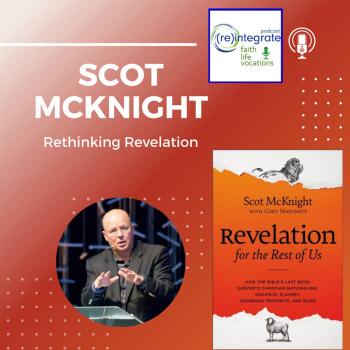So, I was going through my Facebook feed and came across a post on April 12 from Brad Briscoe, the director of strategic development for Forge America (the organization that Alan Hirsch founded when he first came over from Australia) that stated,
“I am convinced that if a person denies or discounts the importance of #APEST in Eph 4:1-16, they simply haven’t dealt with the topic in a serious manner.”
I was astonished at that bold statement, so I had to comment:
“That would be a poor presumption. Very dismissive of those who HAVE seriously dealt with the concept.”
To which Brad wrote,
“Bob, I really don’t mean to be dismissive (although I know it sounds that way). I have recently run across a number of people that simply discount APEST without ever engaging the material… I guess a follow-up question I would have for you Bob, would be if you have seriously dealt with the concept, what are your thoughts on it after doing so?”
Thanks for asking! Here you go, Brad – I hope this helps. I look forward to a spirited dialogue.
Is APEST One of “The Forgotten Ways?”
When I first read Alan Hirsch’s book The Forgotten Ways (Brazos Press, 2006. 2nd Edition pubished by Baker, 2009), I was enthralled. The first five chapters had me rethinking the mission of the church in foundational ways. But then came chapter 6, in which he introduced the “apostolic environment” that feeds into a paradigm “APEPT,” the five words found in Ephesians 4:11-12 that describes gifts God gives to the church in order to equip Christians: Apostles, Prophets, Evangelists, Pastors, Teachers. (Since this book was published, the second “P” for “Pastor” has been replaced with an “S” for “Shepherd,” and thus it is now called “APEST”).
As I first read this proposal, I found it wanting – exegetically, theologically and ecclesiologically. I figured that others would just as easily see the problems with such a paradigm and we’d all move along.
But, the Missional Movement has latched heavily onto Hirsch’s paradigm and many churches are now using it as the means by which to identify leaders for the sake of advancing the missional church beyond what they see as an old, biblically ill-informed institutionalism that has ruined the modern church in American evangelicalism. Alan Hirsch further defined APEST in his 2012 book written with Tim Catchim, The Permanent Revolution: Apostolic Imagination and Practice for the 21st Century Church and is now about to release a new book entitled 5Q: Reactivating the Original Intelligence and Capacity of the Body of Christ, which is getting a lot of pre-publication hype.
More and more churches I know are giving a short survey to help each person figure out which of the APEST he or she might be (see the survey at fivefoldsurvey.com). The goal is to better utilize people and their gifts for the mission of the local church. I will dive into criticizing this survey in a later post.
In this post, I will review the exegetical issues. Then in the next posts, I will review the theological and ecclesiological issues.
APEST is Exegetically Flawed from the Start
I remember my first year learning Greek at Trinity Evangelical Divinity School under Andreas Köstenberger. Learning Greek vocabulary was hard enough, but Greek grammar and syntax – that was a challenge! Among the rules of Greek that every first-year Greek student learns is “Granville Sharp’s Rule.”
Granville Sharp found that this rule applies to the Greek of the New Testament:
When we find in a clause two or more nouns of the same case describing persons and if the first nouns in the sequence are preceded by any form of the Greek definite article but the last noun in the sequence is not preceded by the article but rather is connected with the Greek “kai” (that’s Greek for “and”), then the final two nouns are referring to the same person.
And do you know what verse was among the examples my esteemed Greek instructor used to teach us Granville Sharp’s Rule? You guessed it – Ephesians 4:11.
The verse literally reads how the ESV has rendered it:
“And he gave the apostles, the prophets, the evangelists, the shepherds and teachers…”
In English, we often add the word “and” at the end of a string of nouns like this as our grammatical custom, but in Greek, something very specific is going on.
The first exegetical problem with APEST is that it chooses to ignore Granville Sharp’s Rule. We do not have five specific people identified here but rather four. We are to see the last two as the same person – the shepherd-teacher.
In Alan Hirsch’s paradigm, these two words represent two different things. He believes that we need to find people who will be the pastors (or shepherds) and we need to find other people to be the teachers. In their book The Permanent Revolution, Hirsch and Catchim seek to exegete Ephesians 4:11. They write,
“Paul clearly states that Jesus has ‘given’ (aorist, indicative) certain ‘charisms’ (what we will variously call ministries, callings, or vocations) to the church, distributing them among all the people as he (the giver) sees fit. These gifts are clearly and unequivocally stated as being in the fivefold expressions of apostle, prophet, evangelist, shepherd, and teacher; they have a Christological source and basis and approximate what can now be called the constitutional ministry of the church.”
To show that they’re serious about exegesis, Hirsch and Catchim make references to Greek verb tenses and Greek words, but they do not mention a basic rule of Greek grammar.
To be fair, in the back of the book in an endnote, they do make this concession:
“Many have argued that APEST actually constitutes a fourfold ministry because the conjunction between the shepherd and the teacher might indicate that this is the case. We are not convinced from the text itself or from experience. There are many teachers who are not pastors, and vice versa. But, in fact, for our purposes, it does not matter at all. Some readers may prefer to join the role of the shepherd to that of teacher, and that is fine with us.”
However, in the main text of the book, they make it clear that in their opinion, these must be seen as separate things. The main reason is that they feel that the role of Pastor-Teacher has eclipsed the roles of the “APEs” (the apostles, prophets, and evangelists). There is certainly a good point to make here. However, we do not simply rid ourselves of basic Greek grammar because we don’t like how we’ve seen humans misuse it.
APEST Belittles the Importance of Teaching
Hirsch and the Missional Movement that follows him have a zealous desire to rid the contemporary church of the destruction of being “institutional.” Throughout The Permanent Revolution, we read that Christianity needs to be a “movement” rather than an “institution.” I will get into the importance of institutions in my next post.
Suffice it to say here that the Missional Movement is so anti-institutional that they are willing to badmouth all institutions and to belittle the importance of the Pastor-Teacher. They see the Pastor-Teacher as a vestige of the old institutionalism of the modern church and not what Jesus had in mind for starting new churches.
All this flows from Hirsch’s desire to democratize leadership more widely with the apostles, prophets, and evangelists. While it may be an appropriate thing to point out afresh the need for the APEs, we should not be willing to throw away an essential Greek exegetical rule in order to do so, relying instead on Hirsch’s and Catchim’s personal “experience” that some pastors seem to be unable to teach.
They have become convinced that pastors and teachers need to be separated so that this single office within the “institutional church” will quit abusing their authority. While insisting that they don’t want to belittle the gifts of pastors and teachers, they do so again and again in their insistence that teaching must be pulled way back from its previous lofty place in the church.
The second exegetical problem with APEST is that it chooses to ignore the New Testament’s insistence that teaching is central to discipleship.
The New Testament has much more to say on how to structure the local church than what we find in Ephesians 4:11-12 (as important of a passage as this is).
If, as Alan Hirsch insists, APEST is the key to properly planting and maintaining local churches and the forgotten way by which the first churches went about planting and growing churches, then why is it limited to this one verse? When Paul sent letters to his protégés Timothy and Titus about church planting, why didn’t he focus in on APEST? It is glaringly absent from those pastoral epistles!
Rather than focusing on what Hirsch wants to focus on (the decentralizing of authority in church leadership), Paul talks to Timothy and Titus about the importance of “presbyteroi” (“elders”) and “episkopoi” (“bishops” or “overseers.”). These were the key leaders of the early church.
According to F. F. Bruce, the “pastors” of Ephesians 4:11
“may readily be identified with the ministers who are elsewhere called elders or bishops… A bishop, according to 1 Tim. 3:2, should be ‘an apt teacher.’ Teaching is an essential part of the pastoral ministry.” (Bruce, NICNT: The Epistles to the Colossians to Philemon and to the Ephesians).
Timothy was once Paul’s apostolic partner. Now he is a pastor in Ephesus (the church that Paul wrote about APEST). Paul writes him about how to go about his ministry. Alongside instruction on how Timothy should lead in praying for people and caring for widows, there are numerous times that Paul reiterates Timothy’s duty to teach.
Timothy is directed not to do what Hirsch would direct him to do (limit himself to being just a shepherd and to find apostles, prophets, evangelists, and teachers to carry the rest of the burden of the ministry). He is told to not only pursue a teaching ministry himself but also to entrust what he has learned to faithful men who will be able to teach others also.
Where is APEST in Paul’s instruction to Timothy as he pastors in Ephesus? Teaching is the focus.
Jesus did not say, “Therefore go and make disciples of all nations, baptizing them in the name of the Father and of the Son and of the Holy Spirit, and find among them apostles and prophets and evangelists and shepherds and teachers.”
No.
He said, “and teaching them to obey everything I have commanded you.”
Do not mess with the Pastor-Teacher role in the church. It is so very important.
(NEXT: Ecclesiological and Theological Issues with APEST)
Image by Andy. Used with permission. Sourced via Flickr.













